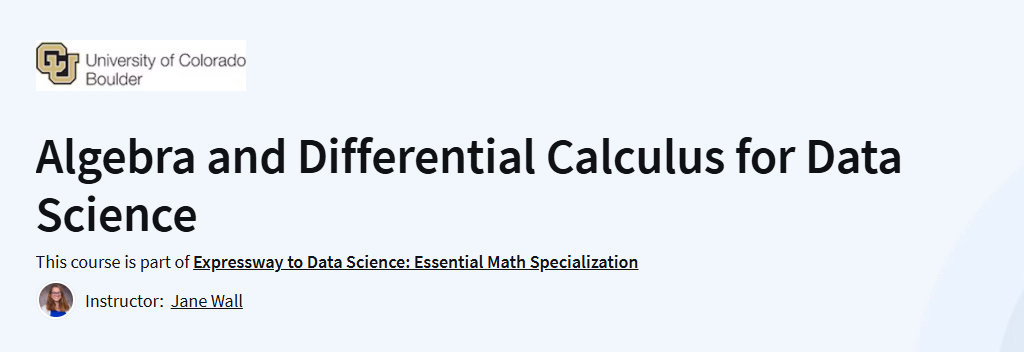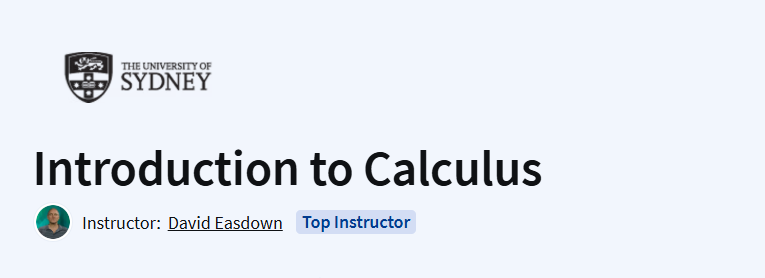What you will learn in Calculus: Single Variable Part 1 – Functions Course
Understand the foundational concepts of single-variable calculus.
Learn about functions, limits, derivatives, and integrals.
Explore the applications of calculus in real-world scenarios.
Develop problem-solving and analytical thinking skills.
Program Overview
Introduction to Functions
⏳ 1 hour
- Introduction to functions, their properties, and applications.
Limits and Continuity
⏳ 3 hours
- Understanding limits, continuity, and their significance in calculus.
Differentiation
⏳ 5 hours
- Learning about derivatives, rules of differentiation, and applications.
Integration
⏳ 5 hours
- Introduction to integrals, techniques of integration, and applications.
Get certificate
Job Outlook
Enhances mathematical proficiency for careers in engineering, data science, and computational modeling.
Provides a solid foundation for advanced studies in mathematical theory and analysis.
Completing this course can bolster qualifications for roles requiring strong analytical and problem-solving skills.
Specification: Calculus: Single Variable Part 1 – Functions
|
FAQs
- Yes, this course is designed for beginners and introduces functions step by step.
- It starts with the basics, making it suitable even if you’ve never studied calculus before.
- However, comfort with algebra and trigonometry will make it easier to follow.
- If you feel rusty, reviewing these topics beforehand is recommended.
- Functions are the foundation of calculus—they describe relationships between variables.
- Limits, derivatives, and integrals all depend on understanding how functions behave.
- Mastery of functions helps in visualizing curves, analyzing changes, and applying calculus in real-world problems.
- Without a strong grasp of functions, advanced topics become far more difficult.
- Yes, the logical reasoning and structured approach you practice here go beyond math.
- Problem decomposition, pattern recognition, and analytical thinking are skills valued in engineering, programming, finance, and research.
- Many industries use functional modeling to make predictions, optimize systems, and analyze data.
- Even if you don’t pursue a math-heavy career, the problem-solving discipline from this course remains useful.
- The course exercises provide a solid foundation but additional practice is highly recommended.
- Solving problems from textbooks or online resources will deepen your understanding.
- Graphing functions by hand or using tools like Desmos/GeoGebra can build intuition.
- The more varied problems you attempt, the more confident you’ll feel moving into advanced calculus topics.
- Yes, functions are everywhere: predicting population growth, modeling financial returns, or calculating speed and distance in physics.
- In technology, functions form the backbone of algorithms and computer programming.
- In business, they help model cost, revenue, and profit relationships for decision-making.
- By learning how to analyze and interpret functions, you’re preparing to apply mathematics in diverse professional contexts.





